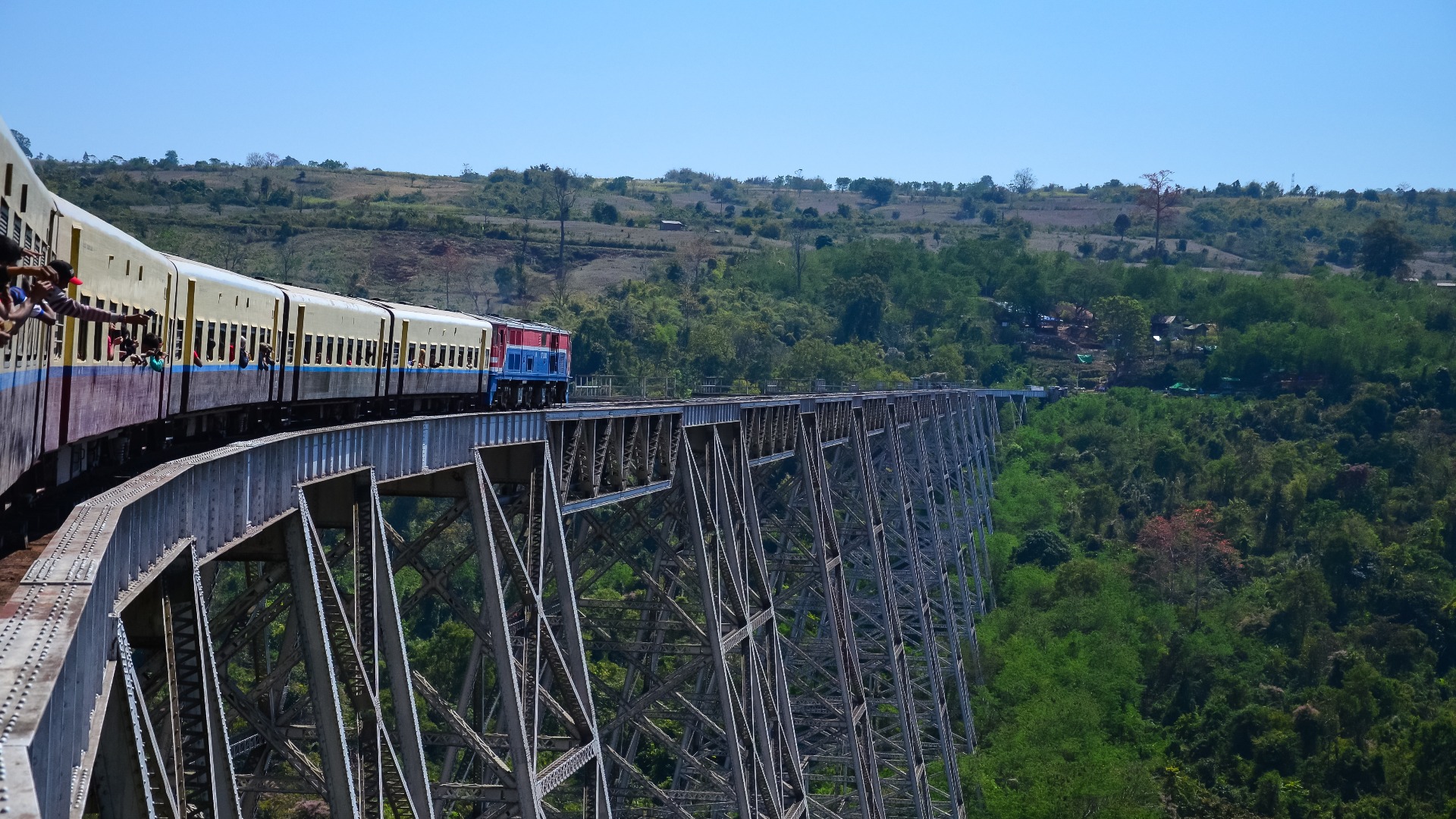
India Builds World’s Highest Railway Bridge in Kashmir

India now has the tallest railway crossing in the world.
The Chenab Bridge is 359 meters tall (over 1,180 feet), and 29 meters (over 9 feet) higher than the Eiffel tower. It's located in India's controversial Jammu & Kashmir region.
The Ministry of Railways announced in March that the bridge will be opened to the public by the end of 2023 or 2024.
The bridge, which is 1,315 meters long (4,314 feet), is part of an ambitious project to connect the Kashmir Valley with the Indian Railways network. In addition to the Chenab Bridge, the Udhampur-Srinagar-Baramulla Rail Link (USBRL) project involves what will become the country's longest transportation tunnel and Indian Railways' first cable bridge.
India's Narendra Modi, the Prime Minister who came to power on the ticket of nationalism in 2014 and promised future greatness, sees investments in infrastructure, like the Chenab Bridge, as a powerful instrument for social integration and influence. It connects disparate regions to key cities.
"The bridge and the greater connectivity it's meant to create will be projected by New Delhi as another big victory for the region's development," stated Michael Kugelman, director of the South Asia Institute at the Wilson Center.
Experts say that linking Kashmir to the rest India via train will boost the industrial and agricultural sectors of the region by providing all-weather rail connections between the valley and India.
The only road connecting parts of Kashmir controlled by India with the rest the country, was the 300-kilometer-long (185-mile-long) Srinagar to Jammu national highway. This road is closed for part of winter, and it's also a frequent site of car accidents.
"We are getting lot of problems going across the road," Anil Kumar Mehendru, vice president of the New Kashmir Fruit Association, said. "Once we will be connected by train with the rest of India, it will be a big boost to this industry, agriculture as well as fruit."
Sushant Singh is a senior fellow with the Centre for Policy Research in India. He said that the bridge has also political implications as it's seen as "a means of integrating Kashmir into India."
Singh said that "the hope" in the past was for the railway link to include the Chenab Bridge to make Kashmir "feel more as a part of India."
Singh told CNN that it is "to be seen" if the increased connectivity of the bridge and rail links will be seen positively by Kashmiris. "In recent years, Kashmir has been undermined by policies taken by Prime Minister Modi and his government which have really alienated the Kashmiris."
India repealed in 2019 a provision of its constitution that gave the Indian-controlled portion of Kashmir autonomy to make its own laws. Modi said that the southern and eastern parts of the region, previously known as the Indian state Jammu & Kashmir, would become two separate union territory.
"New Delhi's message, following that move, was that it would leverage its greater degree of control over Jammu and Kashmir to bring it greater development benefits," Kugelman mentioned. "It will use the bridge as a high-visibility, eye-catching data point to argue its strategy is working."
The Chenab Bridge, which was built in 2002 before Modi took office as Prime Minister, is being hailed as an example of Modi's efforts to promote development in India.
In a press release, India's Minister of Railways Ashwini Vaishnaw stated that "The iconic Chenab Bridge is example of such new chapters and dimensions of development materialized by the inspiring leadership of the Honorable Prime Minister."
Vaishnaw, a CNN affiliate News18, reported that Modi has increased the budget for the USBRL by six times since he came to power to speed up the completion of the bridge after years of delay.
India has invested millions in modernizing its infrastructure. Modi opened the first section, a 1,386 kilometer (861 mile) expressway connecting the capital New Delhi with the financial hub Mumbai in February. In a press statement, the government stated that the 246-kilometer (153-miles) section of the expressway cost $1.4 billion.
The Western Dedicated Freight Corridor is currently under construction, with the aim of decongesting India's rail network.
Source: cnn.com








